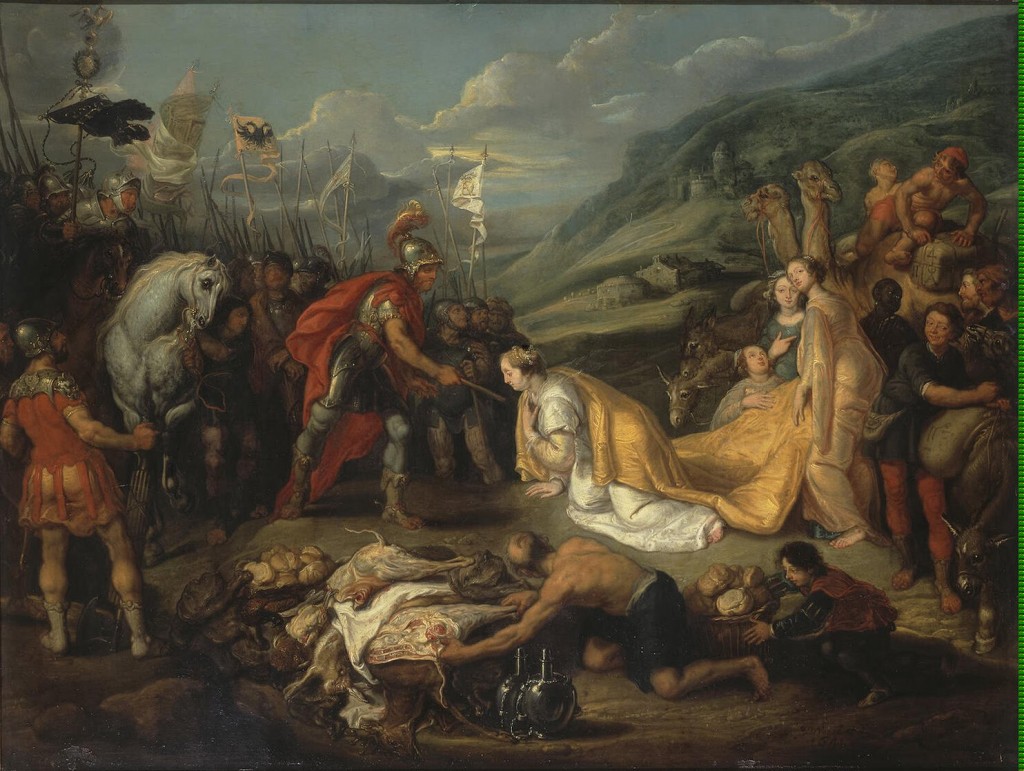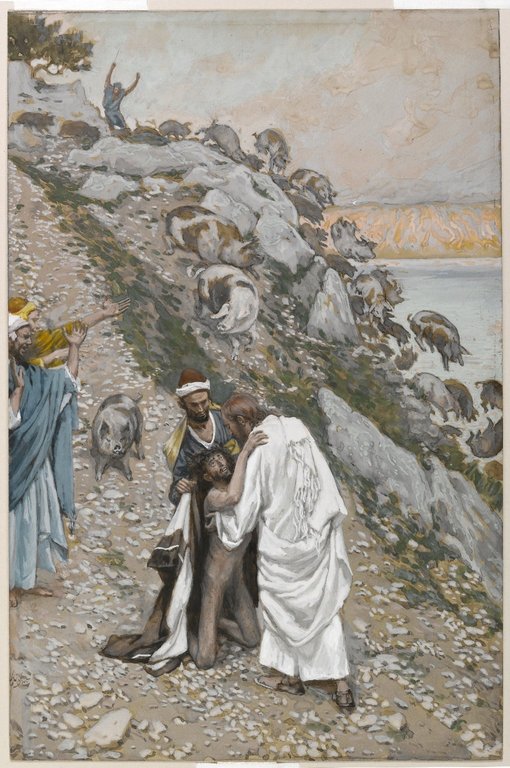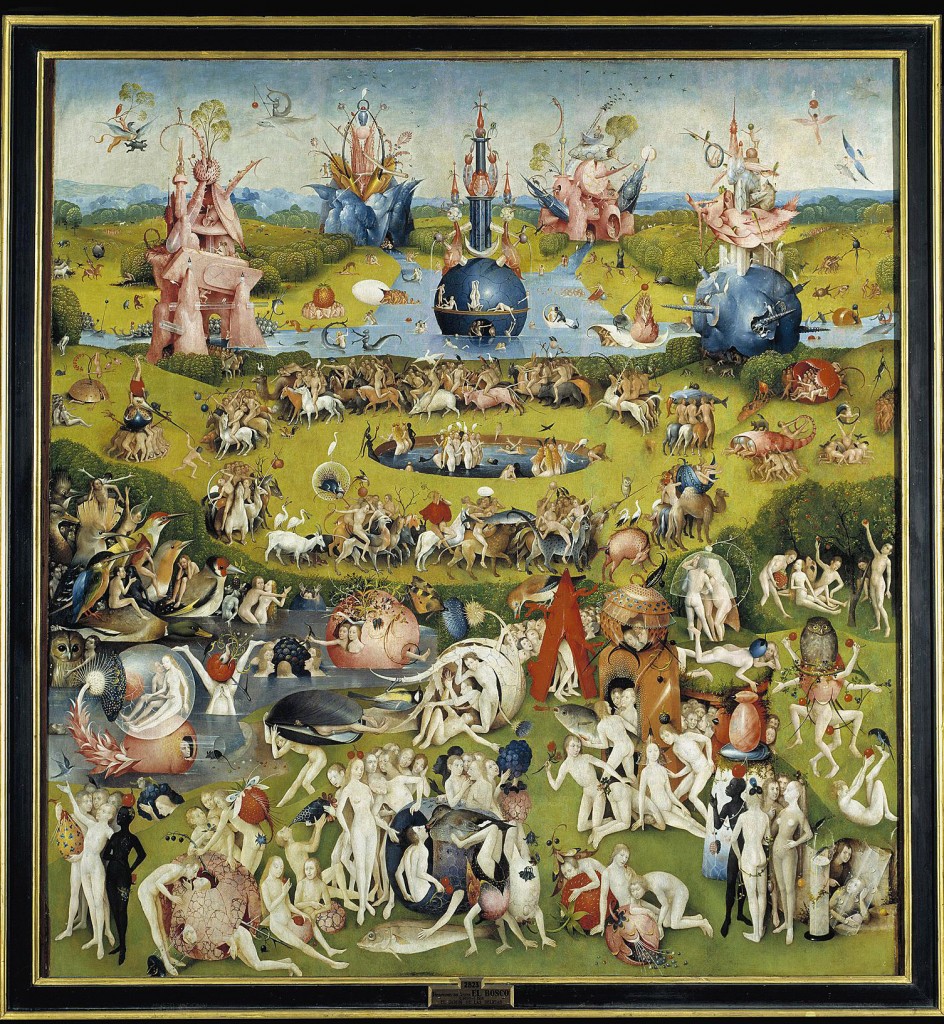I have always been bothered by the way pastors handle certain names, linguistically in the Bible. For instance we are always told that Nabal means ‘fool’. I’m sure it does, today and in the day when his story was recorded in I Samuel. In fact I’m sure it was the case every day after the story happened. Now we are told that names were earned, people did things and were renamed to depict their accomplishments or failures. But I think the opposite is true, perhaps more so. People with certain names give them meaning.

“And as she rode on her ass, she came down by a secret place of the mountain. . .And when Abigail saw David, she hasted and lighted off her ass.” Simon de Vos. 1640
The story of Nabal is not insignificant, it was recorded in the book of Samuel for all of time, which is why we have it 3000 years later. The events, themes, images and names have influenced Christendom and they certainly influenced the Jewish people. Nabal was a descendant of Caleb, he was harsh and badly behaved, while his wife, Abigail, was beautiful and discerning. (As an aside, the Bible just made a characteristic statement about physical appearance. This isn’t talking about inner beauty in some make-the-ugly-feel-better sense. Because it gives two adjectives, beauty a qualification about outer appearance and discernment a qualification about inner appearance. She had beauty and brains, as it were. There is nothing wrong with such statements, and trying to minimized the fact of beauty or ugliness is silly. We have been given what we were given. The problem is, in post Constitution America, we have confused equality before the law with equality in everything. We think everyone should be the same in every way and when a difference pops up we have to explain it away, egalitarian whac-a-mole. Just because you are ugly does not mean you are any less a person created in the image of God, worthy of human rights. Note, not special rights. Human rights mean that when conflicts arise, you will be treated the same as everyone else before the law.) David and his merry men are fleeing Saul and they are in need of food. There was an existing relationship here David had taken care of Nabal’s men, so he is seeking reciprocity. Nabal refused them and so David vowed to wipe them out. Abigail hears this and intervenes to save them. David is pacified and God strikes down Nabal. Then David adds Abigail to his wife collection.
The statement where all the action happens for this topic is I Samuel 25:25 where Abigail says “Let not my lord regard this worthless fellow, Nabal, for as his name is, so is he. Nabal is his name, and folly is with him.” Abigail is creating something here, she is associating this guy with folly. It is obvious that no mother named her kid ‘fool’. So we have two options, either Abigail is calling him ‘fool’ and his name was something else, or his name was ‘Nabal’ and she was saying it might as well be ‘fool’. But it’s clear, to her and probably the whole household this guy and fool were one in the same. I’m sure that around the estate this was their nickname for him. And by this story they are the same for us, and for all of time. That’s how language works.
When you look up the word Nabal in a Hebrew dictionary it says ‘dolt’ and has the same consonants as nebelah which means ‘a flabby thing’. Now where did the dictionary get these definitions? The authors found the words somewhere in Ancient Hebrew texts and ascertained the definition from the context. Similar to how Noah Webster compiled the first American English dictionary, in fact his dictionary often sites the proof texts in Shakespeare or Milton or whoever. So when the story was recorded, this story was probably already known, it certainly was know afterward and when the dictionaries and texts we have were written. Language changed at this point.
You can see the same thing happening in the New Testament with ‘Judas’. People don’t generally name their children Judas these days. In fact the author of the book of Jude in our canon was actually named Judas, but after the betrayal of our Lord the name took on a significantly negative connotation. Whatever it meant before, Judas now means betrayer. Whereas Jude means a sultry English actor–um–I mean the brother of James who was martyred for his faith.
The same thing happens today in our culture. Most of the examples I could think of were negative, that is names turned into terms of derision. Positive name stay names and become prolific. ‘George’ and ‘Washington’ became names for everything in this country. I’ve heard certain countries have laws against naming children Michael Jordan because everyone names their kids after the basketball star. On a smaller scale there is a sort of naming progression in this country where names start with celebrities and descend through the social strata. Gemma, yesterday’s elite name for daughters of the rich and famous is tomorrow the name of every white trash dancer in Vegas. As far as negative names that take on another meaning; Benedict Arnold now means traitor after he betrayed the fledgling United States. Uncle Tom is someone who sold out their people to get along with whitey. Recently we have ‘Clinton’ or ‘Lewinsky’ referring to a sex act. What a great legacy for a U.S. President.
Back in scripture, in Genesis 25 we have “To Eber were born two sons: the name of the one was Peleg, for in his days the earth was divided, and his brother’s name was Joktan”. Again people probably didn’t name their kids ‘division’. But a significant event happened while he was prominent and so it came to mean division. It was passed down in stories or possibly children’s memory devices, like how we would associate Lincoln with the Civil War and Eisenhower with World War II and Obama with–what–failure?
It is interesting to think about how this type of linguistic change has affected a text like the Bible. The text has relayed meaning for thousands of years across changing language and changing culture. The Jews are probably the people most averse to change on this earth, which bodes well for the purity of their text. But since the Biblical language has left Hebrew and transitioned into Greek, Latin and English. The way translators convey the meaning is very complex. The existing words are changing because the people change and the words change the people. So which came first the name or it’s meaning. I don’t know but I do know that observations of language now can be helpful in understanding the past. Also, there is Tolkien.








